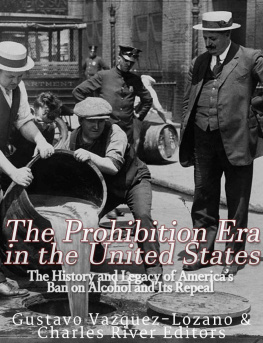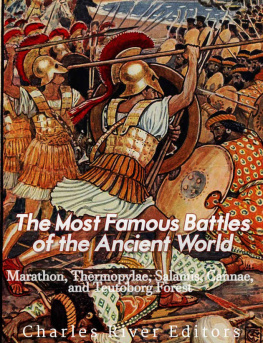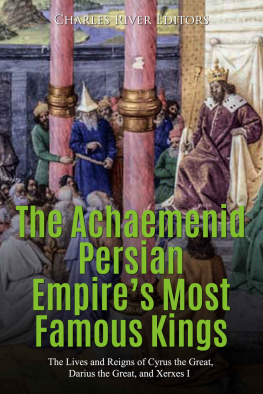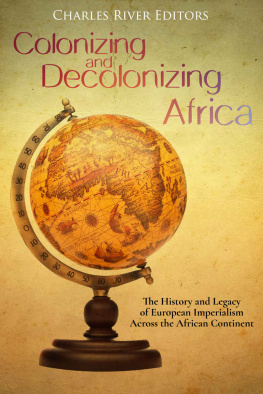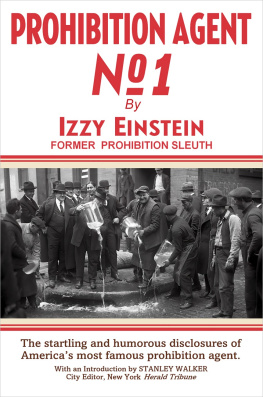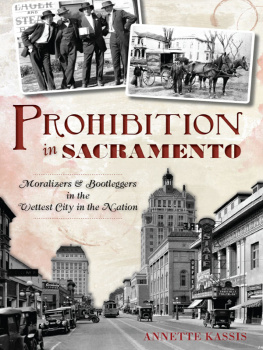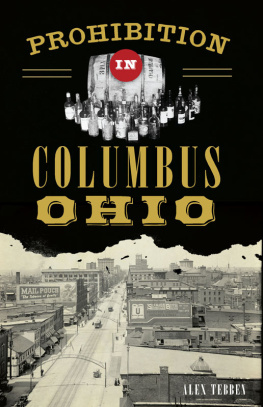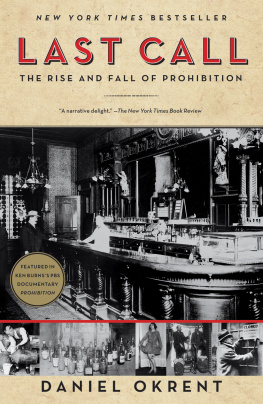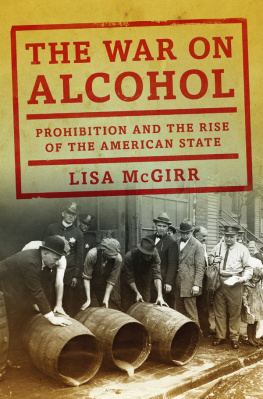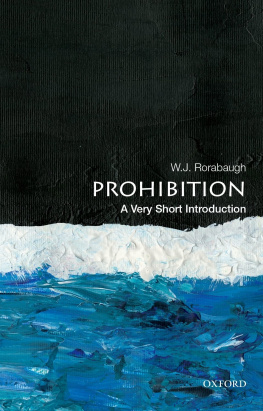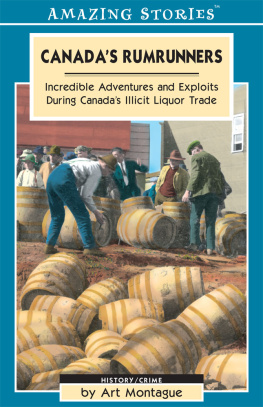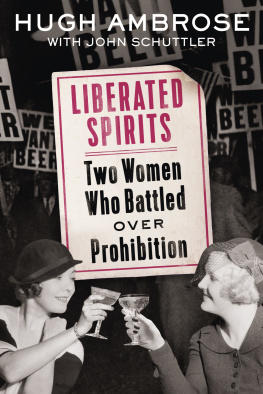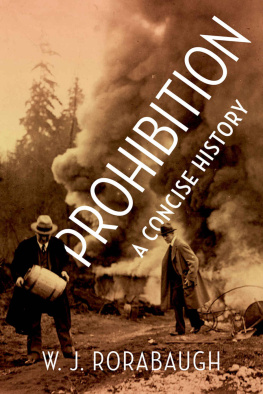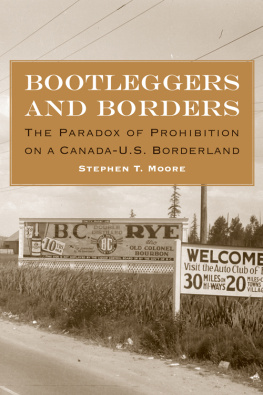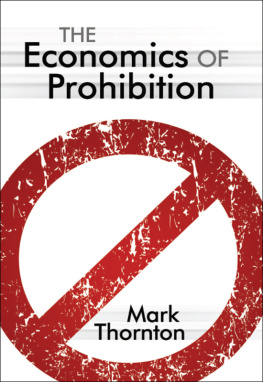Charles River Editors - The Prohibition Era in the United States: The History and Legacy of America’s Ban on Alcohol and Its Repeal
Here you can read online Charles River Editors - The Prohibition Era in the United States: The History and Legacy of America’s Ban on Alcohol and Its Repeal full text of the book (entire story) in english for free. Download pdf and epub, get meaning, cover and reviews about this ebook. year: 2017, genre: Politics. Description of the work, (preface) as well as reviews are available. Best literature library LitArk.com created for fans of good reading and offers a wide selection of genres:
Romance novel
Science fiction
Adventure
Detective
Science
History
Home and family
Prose
Art
Politics
Computer
Non-fiction
Religion
Business
Children
Humor
Choose a favorite category and find really read worthwhile books. Enjoy immersion in the world of imagination, feel the emotions of the characters or learn something new for yourself, make an fascinating discovery.
- Book:The Prohibition Era in the United States: The History and Legacy of America’s Ban on Alcohol and Its Repeal
- Author:
- Genre:
- Year:2017
- Rating:3 / 5
- Favourites:Add to favourites
- Your mark:
The Prohibition Era in the United States: The History and Legacy of America’s Ban on Alcohol and Its Repeal: summary, description and annotation
We offer to read an annotation, description, summary or preface (depends on what the author of the book "The Prohibition Era in the United States: The History and Legacy of America’s Ban on Alcohol and Its Repeal" wrote himself). If you haven't found the necessary information about the book — write in the comments, we will try to find it.
The 18th Amendment making Prohibition constitutional and the Volstead Act detailing its enforcement did not come out of the blueit was neither an electoral occurrence, nor was it a quick and surprising attack by a one interest group taking another unprepared. It was actually the result of a long period of indoctrination, a century of struggles between two political, and above all, moral positions: those who supported Prohibitionthe so-called drys, and those who opposed it, partly because they thought it should not be a government prerogative to control individual freedoms, also known as the wets. The first group believed Prohibition of liquor, intoxicants, and saloons was a necessary measure to eradicate the great evils that were a part of the nations life: drunken and violent husbands, labor accidents due to alcoholism, shattered homes, battered wives, and the familys patrimony lost in a single day. The wets defended a legitimate industry that produced jobs and taxes. They spoke of economic interests that would be damaged and of respect for sacrosanct individual freedom. Above all, the wets argued how strange it was that a government dedicated to liberty and equality would regulate an individuals private behavior, determining what he could or could not ingest. Since the beginning, wine had been an inseparable part of American culture, from the saloons of the Wild West, the grape fields of the California valleys, the tables of homes throughout the territory, to the clubs of the big cities where the working class met to talk about politics. This in addition to other areas in which wine culture was an essential feature, such as social cohesion, the economy, and in the artsespecially where music and literature was concerned.
What no one could ignore was that since the beginning of the 19th century, the United States had a serious problem with the bottle. The nation of Washington, Adams, and Franklin, for example, had one of the highest consumption rates in the world and thus had the highest rates of alcohol-related diseases and family violence. When women, the principal group affected, decided it was the moment to raise their voices en masse, alcohol became a political topic that polarized the country. In favor of moderation were the eminently rural white people of the inner country with an Anglo-Saxon background. At the other extreme was the urban, cosmopolitan population, close to the coasts and therefore, with a better perspective where the rest of the world was concerned. There were two visions, two different sets of morals, and two ways of understanding the role of government. However, the dividing line between the drys and wets cannot be so clearly marked, even today. There were both progressive and retrograde persons on either side. On the drys side whom we might be tempted to caricature as moralistic and uneducatedwere, for example, the suffragists, the brave women who fought for the right to vote, social justice, and a place in the politics of their country. On the wets side, those against Prohibition, were moralistic institutions, such as the Catholic Church and the Jewish rabbinic community.
Charles River Editors: author's other books
Who wrote The Prohibition Era in the United States: The History and Legacy of America’s Ban on Alcohol and Its Repeal? Find out the surname, the name of the author of the book and a list of all author's works by series.

